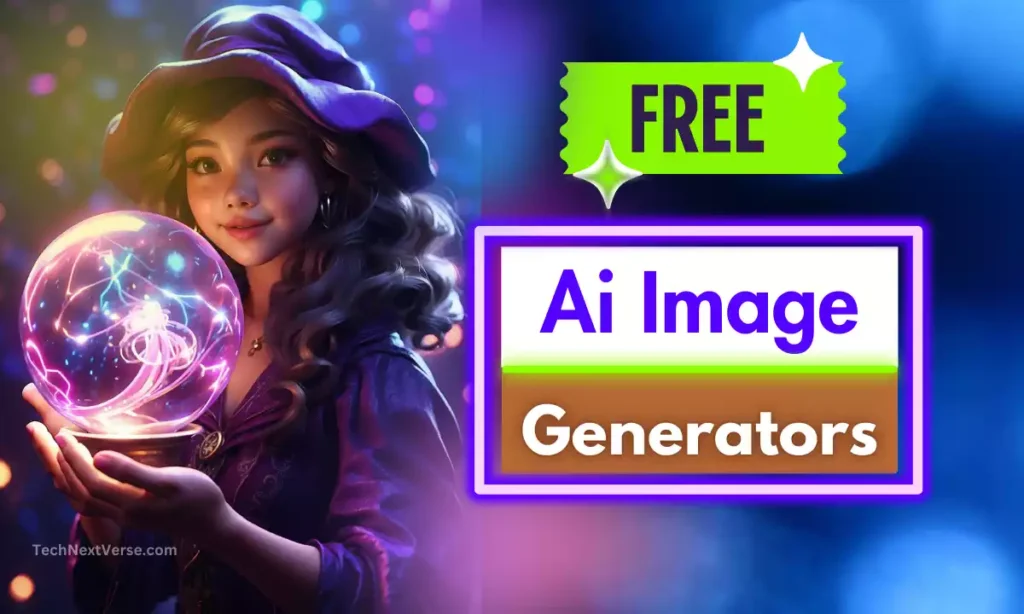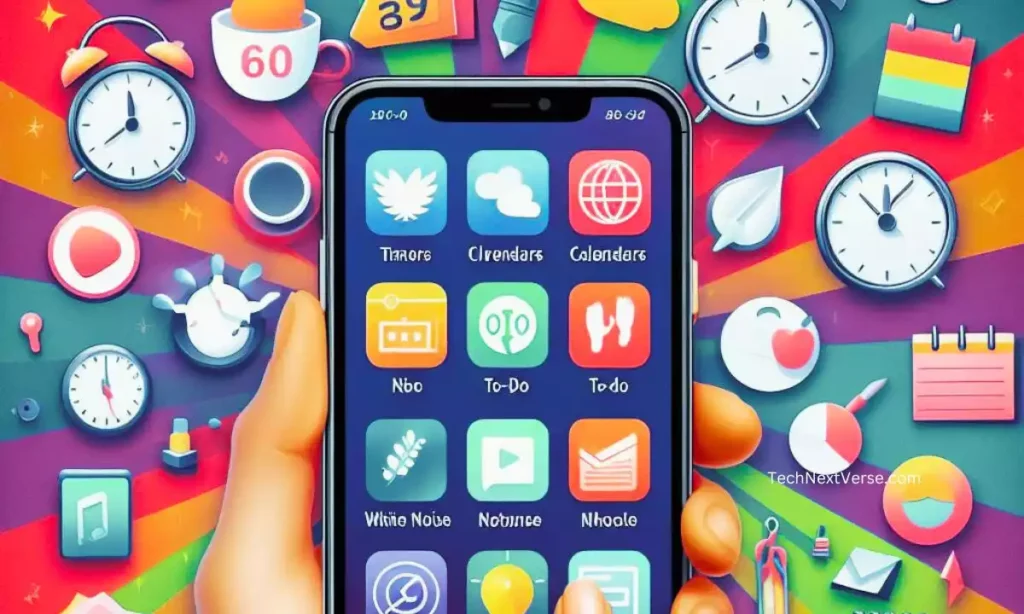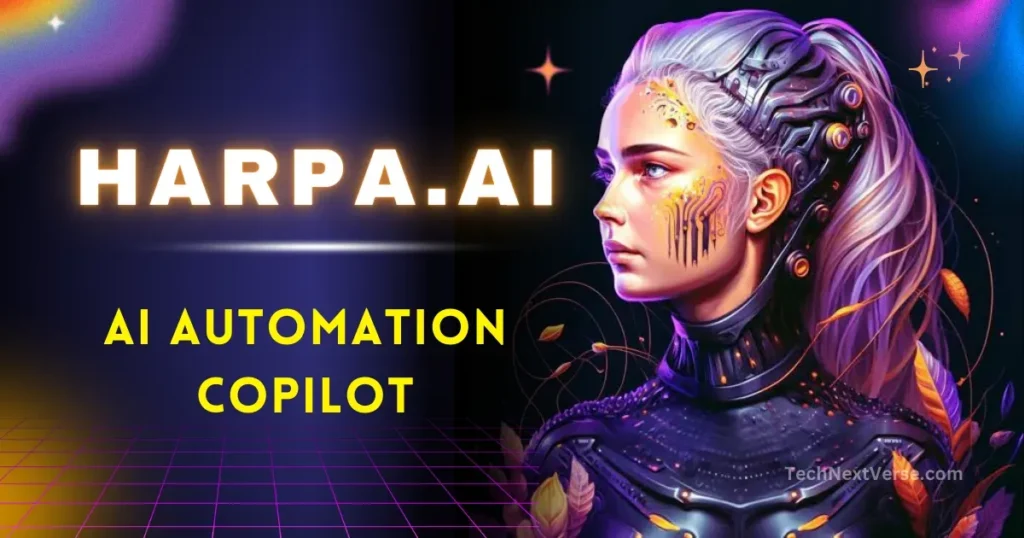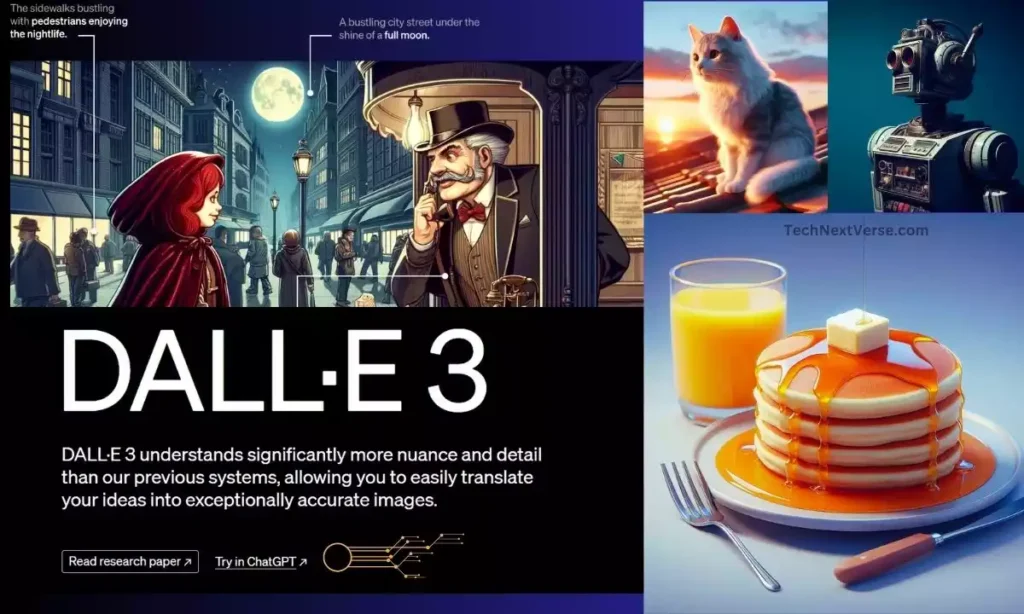
If you are searching for the best AI tools for coding free, then I suggest some secret AI Coding assistant tools which also use top programmers!
There are a range of free AI assistant tools that explain coding clearly, suggest code options, find errors, generate new code and more on your laptop or mobile.
I have tested 50+ AI Coding Tools and found the top 15 best ones that are 100% Free!
So, without wasting any time let’s have a look at this article.
Best AI Tools For Coding Free For Beginners To Pro
You can supercharge your coding skills with the help of artificial intelligence. Even a 12-year-old can start to understand coding concepts and write basic programs. Here are 15 of the best AI Tools for coding assistants:
Code 10X faster with these secret AI coding tools that most Top Programmers use.
1. ChatGPT
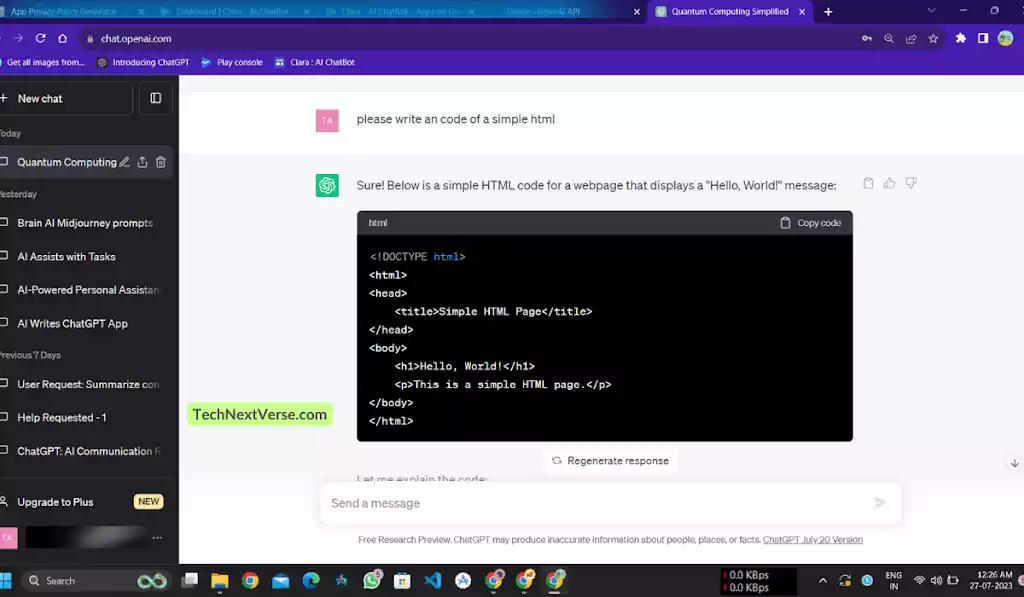
OpenAi’s ChatGPT is a highly advanced AI code generator online chatbot that can explain coding topics in simple language that students can easily learn.
You can ask it questions about coding concepts you don’t understand, and ChatGPT will provide detailed explanations with helpful examples.
It can recommend coding solutions for basic programs you want to create and provide feedback to improve your code.
Pros:
- Explains concepts thoroughly at an appropriate level for young students
- Can recommend full code solutions for simple programs
- Gives detailed feedback on code improvements
Cons:
- Longer code suggestions may contain some inaccuracies
- Requires oversight as an assistant rather than an expert tutor
2. TabNine
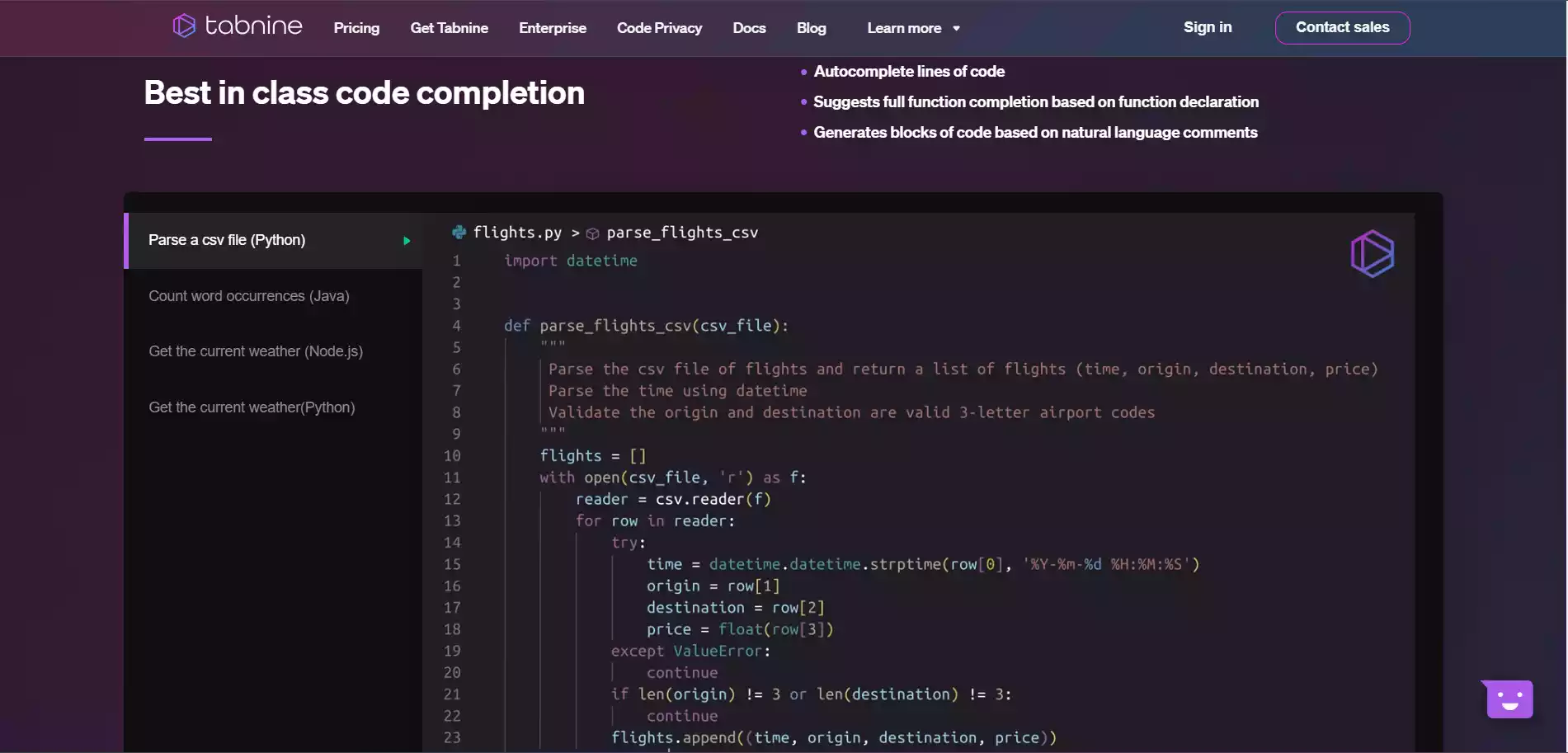
TabNine is an autocomplete tool that suggests lines of code as you type based on its understanding of what you are trying to achieve. For example, if you start typing a function, TabNine may automatically complete parameter definitions and return statements to match what you need.
Pros:
- Helps students code faster by reducing typing.
- Good for filling in basic code syntax needed for common coder tasks.
Cons:
- Students must review suggestions carefully to catch any mistakes.
- Understanding is limited compared to ChatGPT, so less help is available.
3. GitHub CoPilot
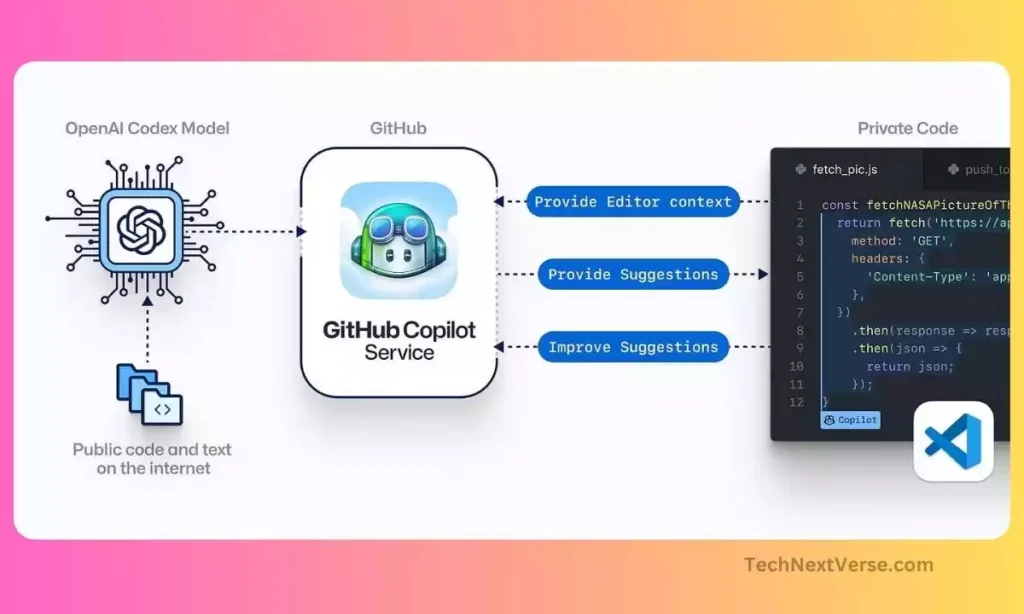
GitHub CoPilot acts like an AI pair programmer, generating whole chunks of code – like function definitions, if statements, or even entire classes – in line with what you need while you code. Rather than just autocompleting, CoPilot tries to understand what you want to achieve at a deeper level.
Pros:
- Excellent for drafting and prototyping code quickly
- Can provide complete code snippets needed for basic program functionality
Cons:
- Suggestions can sometimes be inaccurate and require thorough checking.
- More advanced than what a 12-year-old may need.
4. Replit
Replit provides an online IDE with built-in intelligent code completions, error fixes, and refactors. As you code, it suggests potential autocompletion based on your context.
Pros:
- Browser-based IDE removes environment barriers.
- Intelligent suggestions speed up the coding pace.
- Built-in Copilot integration.
Cons:
- Computation resources are more constrained.
- Synthetic completions may not always be accurate.
5. Kite
Kite provides AI-powered autocompletion, inline documentation, and intelligent code analysis as you type in popular coding editors. When you make a mistake, Kite highlights it instantly and explains how to fix it.
Pros:
- Real-time error checking reassures new coders they are on the right track.
- Helpful for learning correct syntax and language rules.
Cons:
- Currently focused on Python and JavaScript mainly.
- The analysis is shallow compared to ChatGPT.
6. Codex
OpenAI Codex allows you to describe in natural language what you want your code to do, and it will generate complete functioning programs from the description.
For example, you could write “Create a Python program that sorts a list of numbers from lowest to highest value”, and Codex will produce usable Python code to achieve it.
Pros:
- Translates clear instructions into accurate code
- Allows coding via descriptive instructions instead of syntax
Cons:
- Still in research development, so mileage may vary
- Programs tend to be basic given current AI limitations

7. Google’s Teachable Machine
Google’s Teachable Machine is a web-based visual AI tool that lets you train machine learning models without coding simply by demonstrating examples. You capture images or poses on your webcam, label them, and the tool builds a trained model ready for implementation in projects.
Pros:
- An intuitive way to understand machine learning concepts.
- Allows building models with zero coding.
- Exports models for use in websites and apps.
Cons:
- Very narrow focused on computer vision models.
- Limited complexity compared to coding ML from scratch.
8. AlphaCode
AlphaCode is an AI assistant tool for coding built by DeepMind, Google’s AI research division. AlphaCode represents the same innovative concept of translating natural language instructions into executable code.
Pros:
- Allows coding via natural language descriptions rather than syntax
- DeepMind’s advanced AI expertise applied to code generation
- Trained on large diverse code datasets
- Actively self-improving capabilities over time
Cons:
- Currently in limited testing, not widely available
- AI understanding still imperfect compared to human developers
- Code output may lack efficiency without optimization
- Requires significant computation resources to run
9. Microsoft’s MakeCode
Microsoft’s MakeCode is one of the best AI tools for coding where you can create games, animations, and even control microcontrollers using simple blocks of code. It’s perfect for young wizards who are just starting their coding journey.
Pros:
- Visual coding blocks, suitable for creating games and interactive projects, excellent for beginners.
Cons:
- It may not be as versatile for complex coding projects.
- Sometimes, it generates not proper code.
10. Gitauto
Gitauto watches as you make code changes in the Git version control system and automatically suggests useful commit message summaries of the updates to include. This helps plant good commit hygiene.
Pros:
- Keeps Git commit history well-documented.
- Teaches students best practices for code tracking.
Cons:
- Won’t fully understand the complexities of complex codebases.
- Commit message creation is a relatively minor coding task.
11. Studio Bot
Android Studio’s Studio Bot provides AI-powered coding help for Android development directly within the Android Studio IDE. It explains concepts, fixes errors, suggests solutions, reviews your code, and optimizes imports.
Pros:
- Contextual assistance with Android coding from within the IDE.
- Helps complete snippets faster with fewer errors.
- Good for beginners learning Android.
Cons:
- Focused narrowly on Android versus general coding.
- Requires using Android Studio environment.
12. Python Pal
VS Code’s Python Pal acts as an AI coding tutor within the editor, explaining Python concepts line-by-line as you code. If you get stuck while writing a Python program, Python Pal will analyze your code so far and explain what you need to do next.
Pros:
- Perfect for learning Python fundamentals.
- In-editor guidance tailored to your code so far.
Cons:
- Only assists with Python language.
- Advice is limited compared to ChatGPT.
13. StackBlitz
StackBlitz provides an online IDE powered by GitHub Copilot suggestions. As you start typing code, it will offer autocomplete options and quick fixes. Since it runs in the browser, you don’t need to configure a local dev environment.
Pros:
- Browser-based IDE removes setup barriers
- Copilot integration breaks coding help right in
Cons:
- Requires syncing your work to the cloud
- May encourage sloppy reliance on Copilot vs rigorous thinking
14. Elephas
Elephas is a plugin for Python and Keras that assists specifically with building, understanding, and debugging neural network code. For AI coding, it can automatically suggest relevant code snippets.
Pros:
- Very helpful for machine learning coding tasks
- Explains neural network code to improve understanding
Cons:
- Extremely narrow niche use case
- Requires proficiency in Python and Math
15. CodeAdvisor
After finishing a code project, CodeAdvisor reviews your work and provides feedback for improvements in areas like style consistency, security issues, performance optimization, and more.
Pros:
- Helps perfect code before release
- Identifies flaws missed during initial development
Cons:
- More for finished polishing rather than assistance while coding
- Feedback may be too technical for beginners
16. BugBot
BugBot performs static analysis on code in multiple languages to identify subtle defects that lead to bugs down the road. It goes beyond basics like syntax errors to uncover deeper logical flaws.
Pros:
- Specialized in finding bugs others may miss
- Encourages writing clean, bug-free code the first time
Cons:
- Won’t actually help write code itself
- Finds bugs in finished code rather than help during
Some Bonus Best AI Tools for Coding
Here, I suggest some more AI tools that can help your coding.
JavaHelper
JavaHelper deciphers those annoying Java error messages beginners struggle to comprehend. It explains errors clearly and suggests quick fixes for common Java problems students encounter.
Pros:
- Demystifies confusing Java compiler errors.
- Quick solutions to generic Java issues students face.
Cons:
- Java language only.
- Won’t help with conceptual understanding.
Replogen
Replogen is a niche code generator tool specialized for machine learning data preparation and ETL (Extract, Transform, Load) workflows. It writes repetitive data processing code automatically.
Pros:
- Automates tedious boilerplate coding.
- Allows focus on higher-value ML tasks.
Cons:
- Extremely narrow use case.
- Still requires some coding knowledge to use.
12. Shift Left
Shift Left is a security tool that scans code as you type for potential vulnerabilities and provides remediation guidance. For example, it may catch the use of improper inputs or prevent cross-site scripting attacks.
Pros:
- Catches security anti-patterns before code is deployed
- Raises awareness of secure coding practices
Cons:
- Still in beta development with some inaccurate results
- Most suggestions may surpass a beginner’s needs
APIs.guru
APIs.guru provides the largest databases of API definitions allowing you to easily connect popular web services without starting from scratch. It jumpstarts projects by providing the schemas needed to code API integrations faster.
Pros:
- Reduces grunt work finding API specs.
- Kick starts real-world coding projects.
Cons:
- Doesn’t write actual integration code.
- Most useful after gaining coding ability.
Conclusion
So, in summary, these best AI Tools for Coding free for beginners to pro which can help boost your programming skills, particularly on your educational journey in understandable and relatable ways.
AI will never replace fundamental critical thinking skills, but it is making coding increasingly more accessible and comprehensible for future generations.
Happy coding!
FAQs
-
Which AI generates code for free?
There are several AI tools for coding. Github Copilot is one of the best AI code generator for free.
-
Is OpenAI Codex free?
Yes, OpenAI’s Codex is a free code generator tool. It’s a free API service that can be used by anyone. It is very popular for developers. It is one of the best AI tools for Coding.
-
Which AI gives Python code?
Python Pal which is an AI assistant within Visual Studio Code that explains Python code and concepts line-by-line and provides guidance tailored to your code.
-
Which is the best AI for coding?
ChatGPT, Copilot, Codex, Kite, Elephas, Python Pal, and cloud IDEs like StackBlitz and Replit integrated with Copilot are the main AI coding tools that can directly generate or assist with writing Python code.
-
Are AI coding assistants really helpful for beginning coders?
Yes, AI tools can provide a lot of value for new coders, especially kids. They can explain concepts clearly, provide examples, suggest code options, find bugs, and more. This helps build knowledge and confidence.
-
Are the code AI tools written of high quality?
It varies. Simple code snippets are usually decent but may need tweaks. Whole program generation often produces workable but rough code. Reviewing output critically is key.
-
How should I use GitHub Copilot responsibly?
Because Copilot suggests chunks of code, be attentive to possible plagiarism issues. Paste suspect snippets into search engines to check for high similarity elsewhere or ambiguous licensing.
-
Can AI tools teach me how to code completely?
No, the Ai tool can teach coding perfectly on its own. Technology has limitations compared to human teachers. Think of them more as tutors providing extra support.
